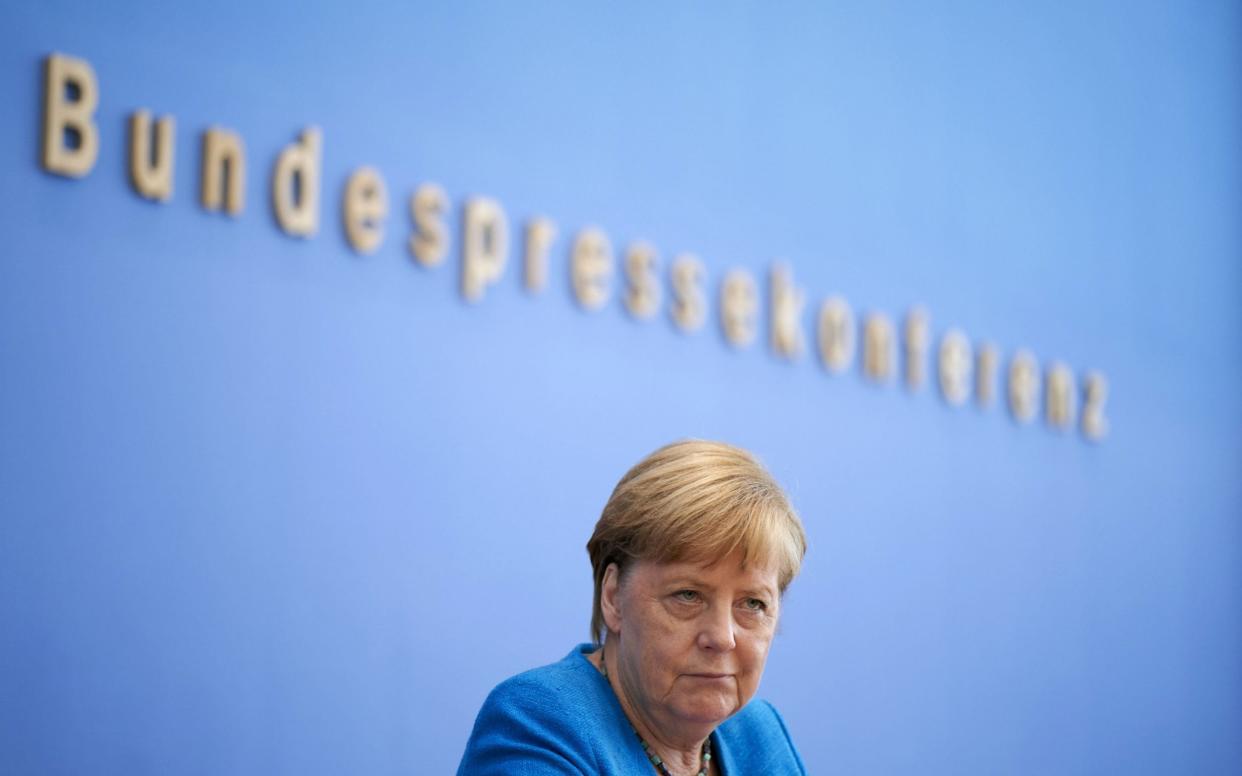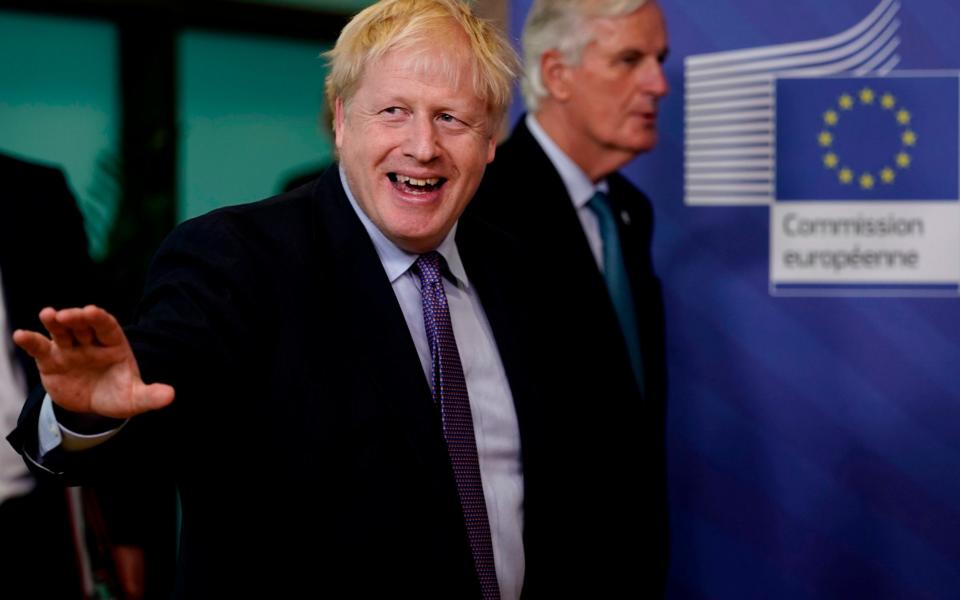Brexit talks will go down to wire, Angela Merkel suggests as leaders are called in to get deal done

Angela Merkel has hinted she expects Brexit talks to go down to the wire as she said they would keep her staff occupied until the end of 2020.
The German Chancellor used her annual summer press conference to say she expects the Brexit trade talks to keep her team “busy until the end of the year”, which is also the end of the Brexit transition period.
“The crucial weeks are now approaching to clarify the future relationship” between the UK and the EU, Merkel said.
The comments come after the EU’s chief Brexit negotiator has started urging leaders in the bloc’s national capitals to appeal to UK Prime Minister Boris Johnson to step in on the talks.
The German presidency of the EU council removed Brexit from the agenda of a meeting of deputy EU ambassadors scheduled for next week suggesting the mood in Brussels is that more senior figures are being requested to step in.

Despite Merkel’s comments on the timeframe, EU sources say it is “too early to comment” on whether or not Brexit will creep onto the agenda when leaders meet in Brussels in late September.
A special summit has been called later in the month to talk about escalating tensions between Greece and Turkey over drilling in the Eastern Mediterranean.
Diplomatic sources say they will “wait to see what the outcome of the next round of Brexit talks is” before making a decision on the agenda – that round taking place in London on the week starting the Monday 7th September.
But with both sides saying very little progress is being made during Brexit talks, it is looking increasingly likely that EU leaders may step in.
Michel Barnier said this week that during the last round of talks, he presented the UK side with a timetable proving a deal needs to be in place by the end of October to ensure there is time to ratify it in the relevant parliaments around Europe.
Barnier has warned a deal “seems unlikely” and that they have been “wasting valuable time”:
The UK’s chief negotiator believes the way the EU is insisting the negotiations are structured “makes it unnecessarily difficult to see any progress.”
David Frost has frequently lamented the fact that Brussels will not move onto issues while they are still hung up on the main sticking points.
Those remain over fisheries, the EU’s demand that the UK remains under its rules on state funding of companies and over whether EU courts have jurisdiction in enforcing the rules of the trade agreement.

 Yahoo News
Yahoo News 
